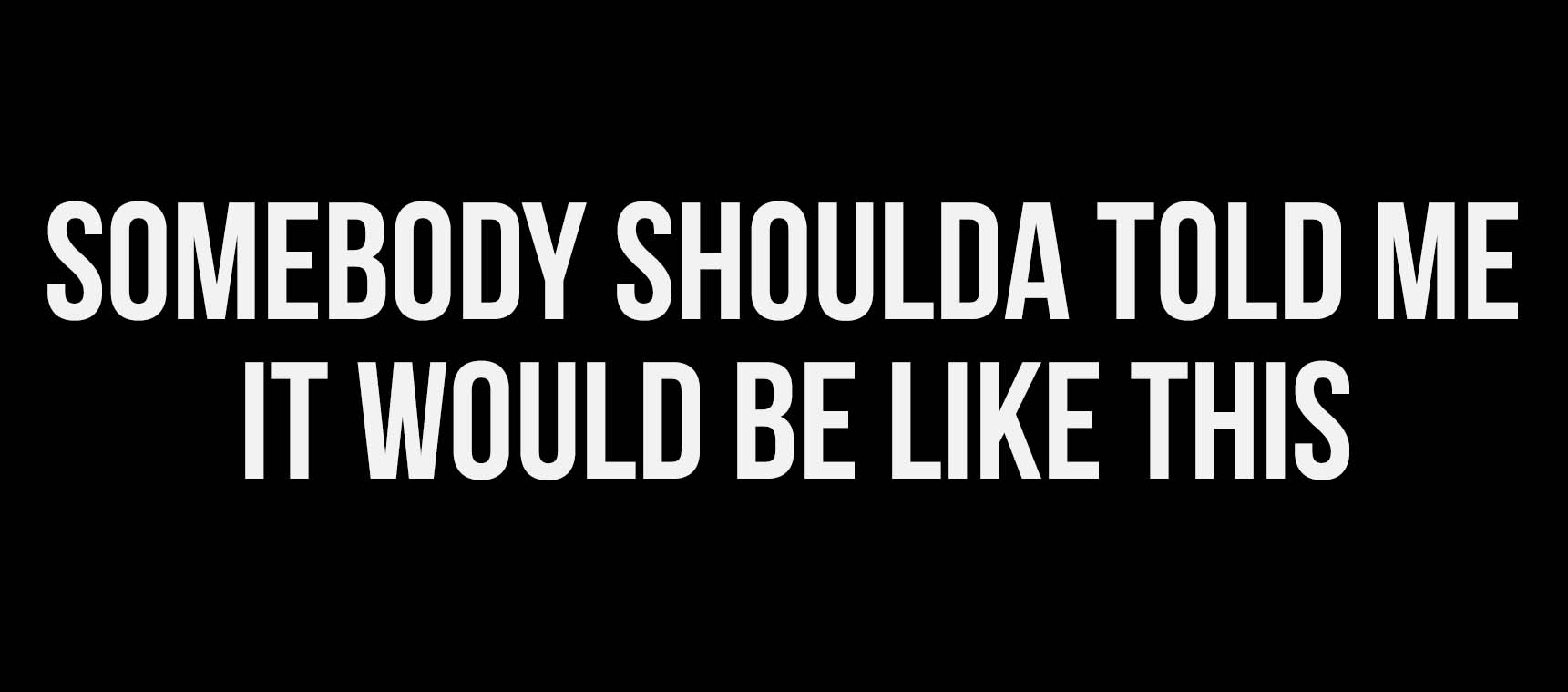Somebody shoulda told me it would be like this
Be like this, be like this
False prophets…
– J Cole [False Prophets]
In June of 2017, I made the most challenging decision of my professional career–I accepted a tenure-track position at a university where I am responsible for preparing pre-service teachers. I decided to leave the excitement of the urban classroom where my daily experiences and interactions with young people resulted in laughter, enthusiasm, tears, and ultimately, growth within us all. In my role as a secondary educator, I was able to develop relationships and work alongside parents and colleagues who truly care about the lives of underserved students of color, many who have unfortunately been pushed to the margins of society by oppressive systems.
Graduating with my Doctorate in Philosophy in Science Education from Teachers College, Columbia University in May of 2017 has been one of my biggest accomplishments. Through this accomplishment, I saw how this achievement has influenced my students and colleagues to pursue seemingly unattainable dreams. Once I decided to join the academy, I developed a feeling of loneliness. I was leaving my middle school students where I felt belonged and engaged in work that involves the community, to accept a lofty position within the ivory tower where I imagined I would have a far greater impact through preservice teachers, research and scholarship preparation.
My goal as an educator, understanding that our education system was built on oppression, has always been to develop forms and approaches to teaching and learning that not only disseminate content, but that liberates young people and arms them with the skills and tools needed to liberate themselves and others, ultimately encouraging them to think critically about the world they contribute and belong to. A huge part of my own academic liberation and success in navigating a rigid graduate institution was my mentor, and former doctoral advisor. The space then available to me felt welcoming. I was able to focus my studies on topics that interested me and that initially compelled me to pursue my doctorate degree including Hip-Hop culture, Hip-Hop as Education, and equity in STEM & Urban Education. These areas of study, while unpopular, were considered trendy and cool in academia and therefore was welcomed. Hip-Hop and Black culture, as perceived by many educators, is a “cool” way to engage students of color in educational spaces. But it isn’t perceived as necessary.
The truth is, once you obtain your Doctorate in Education, becoming a tenured-track professor is often viewed as the ultimate end goal where one can more greatly impact a wider span of progress. Once I “ascended” and began my tenure as a college professor, everyone around me viewed me as if I had made it, as if I had reached the peak of my career–and at such a young age. The transition from being a secondary educator to being a college professor was challenging. I thought I was prepared for all the possible politics of higher education through my experience as a graduate student and conversations with mentors of color who had shared their complex experiences and have successfully navigated academy for decades. But I don’t think anyone could have fully prepared me for the realities and internal conflict that I experienced as a Black first year faculty member. For the first time in my life, I worked for a predominantly White institution and was the only person of color in my department. I had to exist and thrive within the academy, a space where my colleagues did not understand where my passion and drive for improving educational spaces in urban communities stems from. I had to find a way to navigate the academy as my authentic Black Bronx bred self and exist in a space where very few people understood my realities and experiences as a young Black man. The academy despartley lacks racial diversity. In 2015, the national center for education statistics reported that only 4% of full-time faculty in degree-granting postsecondary institutions across the country identified as Black with 83% of full-time faculty identifying as White. With such limited racial diversity, there are limited perspectives presented in conversations that inform practice, teacher preparation programs, and education policy that will directly affect the lives of many young people. Now experiencing the reality of lack of diversity in higher education, our perspectives are desperately needed in discussions with pre-service teachers and even more so within predominantly White institutions.
Many academics that I meet understand that education systems and structures are socially unjust; they understand the need to increase diversity within academic spaces, and they understand the importance of preparing all teachers to be effective in urban spaces, but their understanding of diversity and social issues remains just that– a basic understanding that social issues exist and negatively impact specific groups of people. I’ve come to realize that many academics who are preparing teachers for the 21st century do nothing to move from their basic understanding of inequitable education systems to doing the internal, critical and self-reflective work necessary to recognize their complicity within an inequitable system. Further, as academics choose to remain in spaces of comfort within their basic understanding of social justice and education, they are not working to actively to dismantle these systems or to provide equitable experiences for young people who are negatively affected by inequitable education systems.
Buzz words such as diversity, urban, culturally relevant, and equity to name a few, that are popular in education for describing youth of color and their realities are grossly misused. Academics use these words to demonstrate their “competence” or lack thereof, as it relates to issues that include youth and people of color. The continued misuse of terms that are known to describe the realities of people of color leads to the loss of fervor that once existed. As these terms lose their power, the experiences and realities that they were intended to highlight become minimized. Many academics are comfortable in their meager demonstration of competence towards issues and terms that highlight the realities of people and youth of color because true understanding would beget a truth about a perpetuance of these systems built on social injustice. In other words, an academic would have to confess to his/her place in sustaining these systems. It would illuminate an academic’s crucial role in the cycle of disrupting inequities. Profound acknowledgement would naturally offset an expectation for change in mindset of their respective work, necessary to truly assist in liberating oppressed groups of people.
Ignoring issues of social justice aligns with current, and arguably historic, mindset of many in the academy and in education writ large. I know of academics across many institutions of higher education engaging in conversations around social justice, but fail at putting their newfound knowledge into practice. Understanding the general mindset of academics, I, as a prescribed academic, am still working through this internal conflict to identify ways to create a positive and inclusive space for all, while combating the complacency and thoughtless effort of unwitting academics to create real social change that affects historically oppressed groups of people.
There were moments when I was a graduate student where I dreamed of career as an academic. I dreamt of having the flexibility and institutional support to positively impact underserved youth. There were also many moments where I idolized prominent scholars in the field for their scholarship and words. I’m not the only one. What I have found to be problematic is that many academics who have obtained terminal degrees and are considered experts in education, fall short in actually creating positive change outside of themselves. In our digital age, I notice many academics focusing their scholarship on trendy areas of study, possibly hoping to increase their visibility in the academy, with the intention of wanting to become a “prophet.” Conversely, if many academics are engaging in work and scholarship solely with the intent of becoming a “prophet” in education, then they are distracted from the necessary work that can be done to truly impact communities and young people. We automatically idolize academics–false prophets– for their major accomplishment in obtaining a terminal degree, but if those credentials are not being used to actively invoke any real change of a system built on oppression, what is the point? Further, institutions, many built on the backs of slaves, who claim they are committed to issues of social justice and equity are not. Oftentimes, there are not any real policies or strategies put in place to provide long lasting and meaningful support to historically oppressed groups of students and faculty members.
This blog is a product of many days of deep thought and reflection in pursuit of trying to truly understand my quarrel with the academy. While I focus on aspects of the academy that I find unsettling, I would be remiss if I did not acknowledge academics who selflessly engage in community work and scholarship that directly impacts and benefits young people and underserved groups. Academics whose passion inspires their scholarship, and whose scholarship is authentic and contributes to the lives the of people. There are academics who have committed their lives to providing support to junior faculty and students of color, where institutions of higher education have failed. But a single person cannot do this. Where is the sustainability in that?
As I reflect on the culture of the academy, and try to make sense of it, I find a better, stronger and more resilient self. My existence, no matter how uncomfortable, is needed in the academy, especially for folks of color, who will come after me. It’s time to start being braver in these uncomfortable spaces and contribute in connecting spaces that are committed to supporting the specific needs of underserved groups. In becoming braver, committed academics should critically examine the privilege their credentials bestow them, recognize their complicity within an inequitable education system and work to develop their understanding of varying perspectives. Working toward equity is not a easy job, especially during our current social climate; but this work is urgent.
False prophets…





I appreciate you sharing this…I had a feeling after applying to several well-known public ivies that I wasn’t going to be satisfied with the lack of true depth in their work…Disappointed, but not surprised…